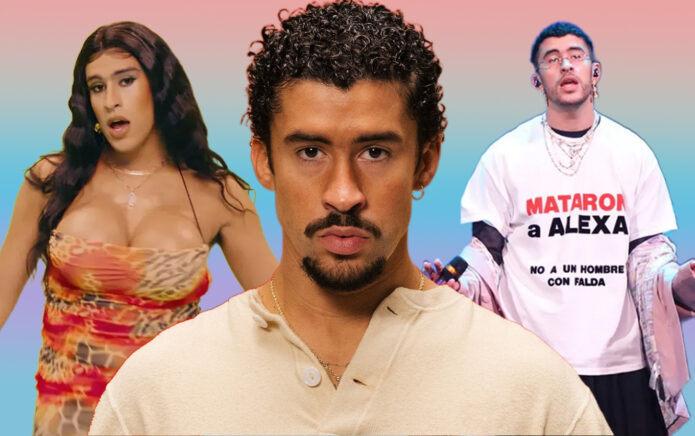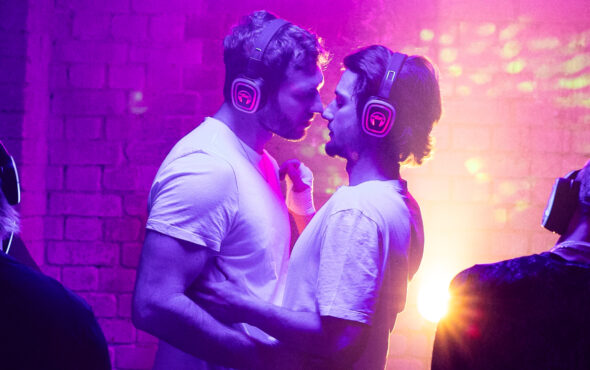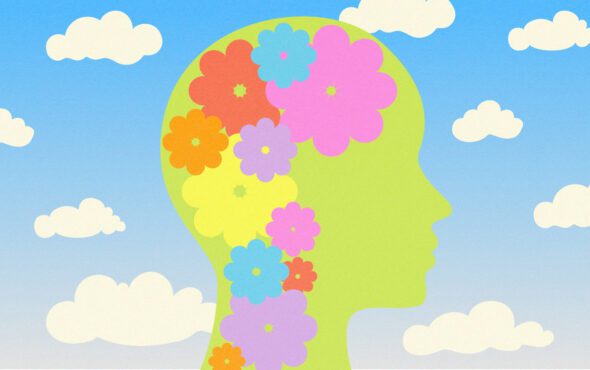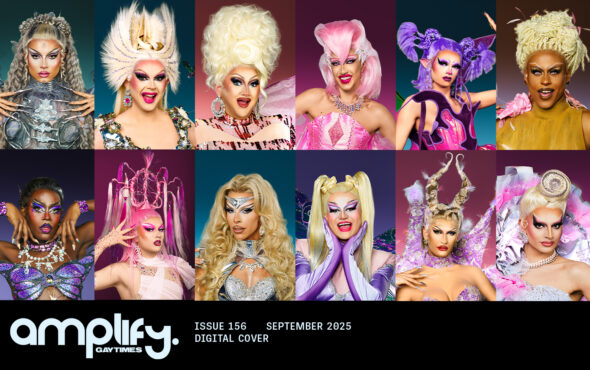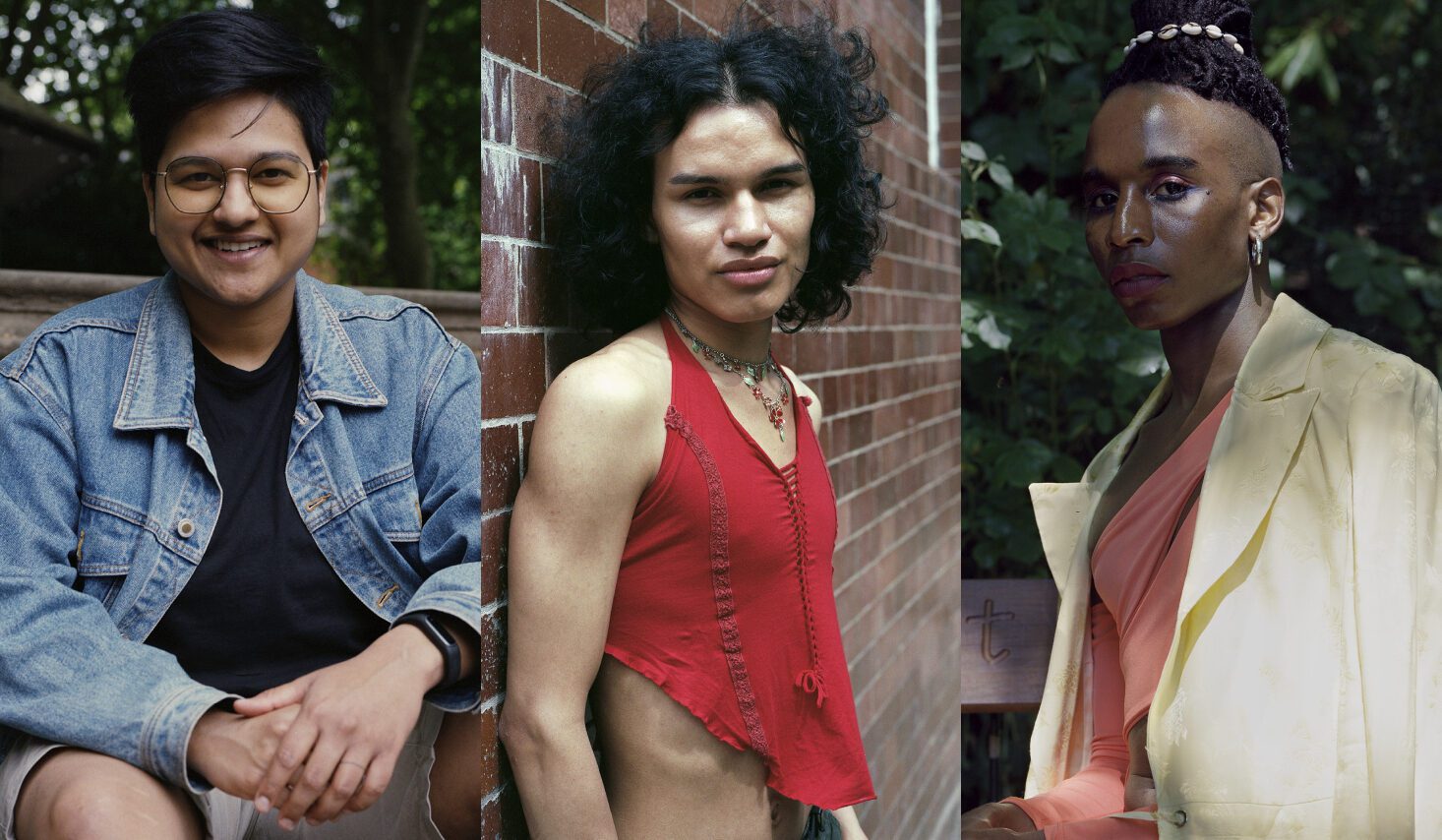
As a non-binary transmasc immigrant, Lombardo says it was important for him to tell the stories of those who “share a similar journey” to him, who moved to a “different country for a better life” but soon realised it was “not as as easy as expected”.
“Leaving home and creating a new life in a different country is challenging for everyone,” Lombardo tells GAY TIMES, “but this is harder for trans people who often face issues with the administration not respecting our identities”.
Despite this, Lombardo explains that, for many trans individuals, the UK is a “place where they feel safe and free to live their authentic lives” because of how they’ve been wholly embraced by the country’s LGBTQ+ community.
Having no trans role models for Lombardo to look up to in the mainstream influenced his decision to show people that “there is no unique way of being trans, that we come from different backgrounds and nationalities, that we have different gender expressions and styles, and that all of our stories are valid and deserve to be celebrated”.
“The first trans people I saw in the media were so badly portrayed that it delayed my gender exploration and coming out,” he reveals. “Sometimes, I’m angry about the amount of internalised transphobia I still hold because of the awful representation I had growing up. But, anger can be a good feeling because it leads to action.
“So, I want to use my voice to create the representation I didn’t have as a child. The people I photograph are gorgeous, and I want the world to see them in all their beauty.”
While Lombardo’s aim was to “show the beauty of the trans community” with this photo series, he says it was also important to stress how much work needs to be done “to create a welcoming and peaceful environment” for trans and non-binary immigrants in the UK.
“Especially for trans people of colour, even if they can feel safe here in their gender identity, they still face racial discrimination” continues Lombardo. “The UK government and media have to work a lot to make this country a safe space where the dignity of life is respected.”
Lombardo’s photo series is part of a GAY TIMES and Channel 4 campaign to spotlight local Pride events across the country, titled #ProudAllOver.
Pride celebrations have dramatically increased in the UK this year, with approximately 180 events taking place. This campaign demonstrates how communities in rural locations come out and support the Pride movement.
Lombardo says it’s important to “highlight local stories” due to the mainstream media’s focus on Pride events in major cities, such as London, Manchester and Brighton.
“Also, the media only write about trans people when they want to debate our existence,” the self-taught photographer explains further. “Queer folks rarely have the space to tell their side of the story, and we are so tired of the cis-het gaze. We must be the ones telling our stories. This local Pride event is an opportunity to do that.”
Visit our hub to keep up with the #ProudAllOver road trip and learn more about the brilliant regional and local Pride events in the UK, and see all the incredible photos from Cohen’s stunning series below.
Kika (She/They/He), Uruguay
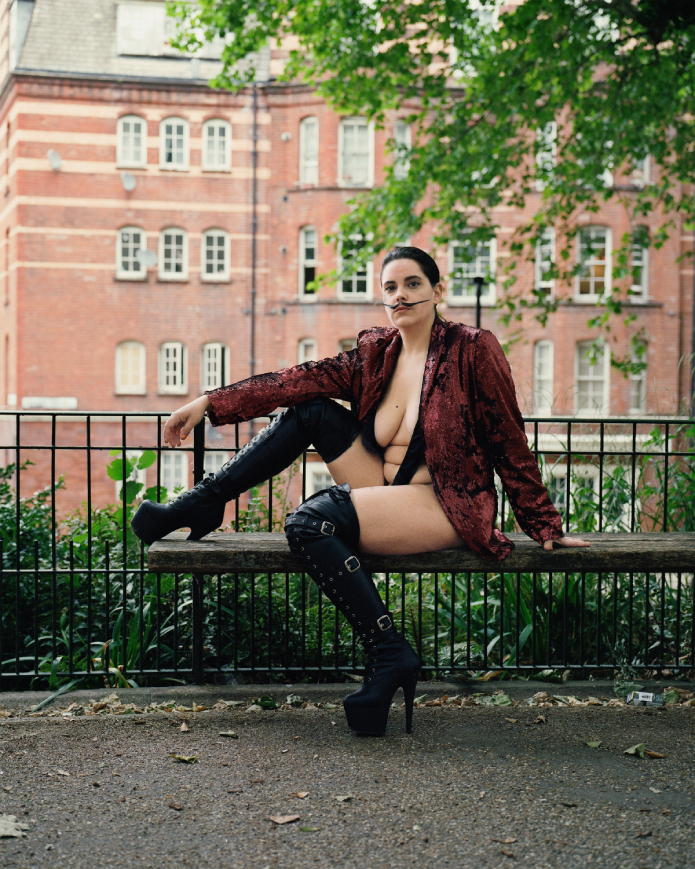
“Pride to me is a celebration, but mostly a manifestation. Specially this year because of everything that’s going on, I am going there to protest more than to celebrate. I was able to explore my gender identity when I left Uruguay, because even though in my country we have now many laws that help queer people, it’s still a close-minded place. In Uruguay I never feel I can dress in the way I got dressed today for the photoshoot without fearing harassment. Leaving my country was an opportunity to explore my gender and my identity in general.”
Teena (They/Them), India
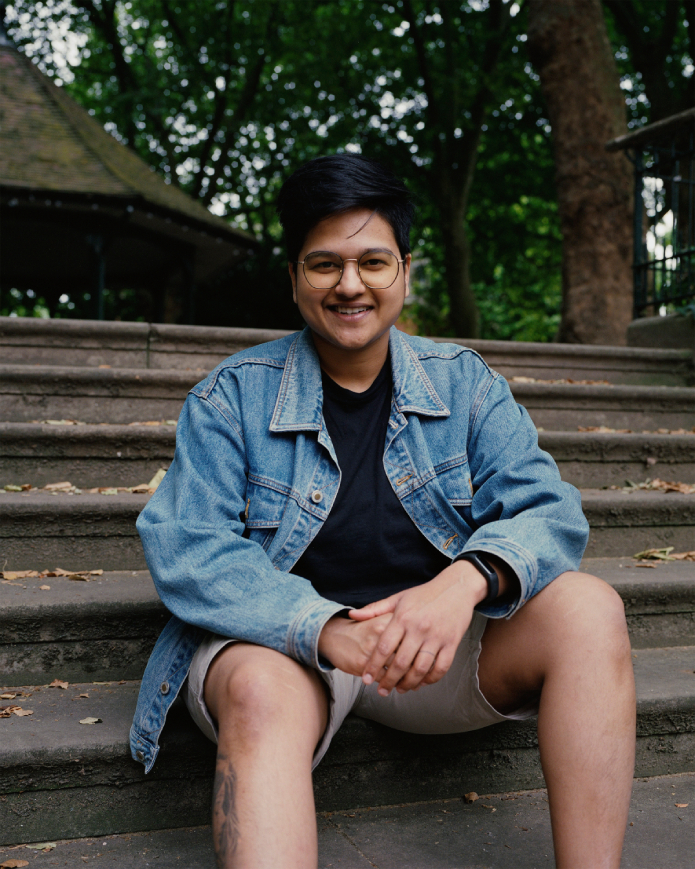
“I still feel guarded and unsafe when I go to Indian-dominated areas here, that’s not to say that I feel safe everywhere else in the UK, but the reason I’m feeling carefree in most places is that I don’t know the community that lives there, and I don’t feel answerable. I don’t feel like, ‘Oh, this person who looks like people in my country is judging me.’ But when you go to a location where people look like you, the markets are like what you’re used to and suddenly you feel hyper-aware of the fact that, ‘This is what I look like, and this is not a usual look in India.’ So, the moment you go into a space like this, a lot of people start staring, and I hate the staring.”
Ogie (They/She), Philippines
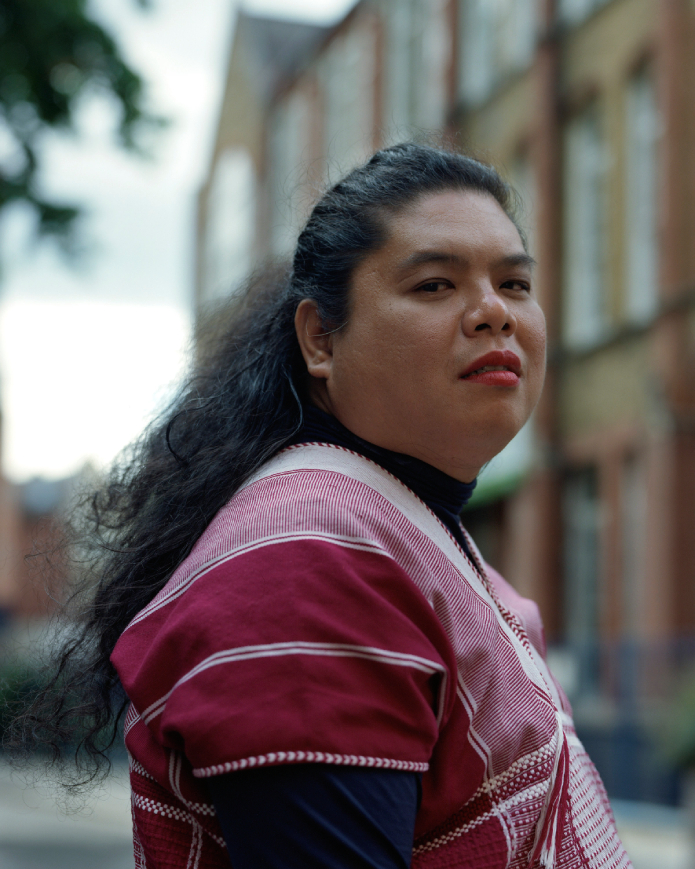
“For me, Pride is a protest because of my background. I am an exile, playwright, and a novelist here in the UK. And I see Pride as a space where, me and my community, we can protest what is happening with the fascist government in the Philippines and also protest on how we are being treated here as a UK within the hostile environment as members of the LGBT community and as migrants.”
Ideal (He/Him), French West Indies
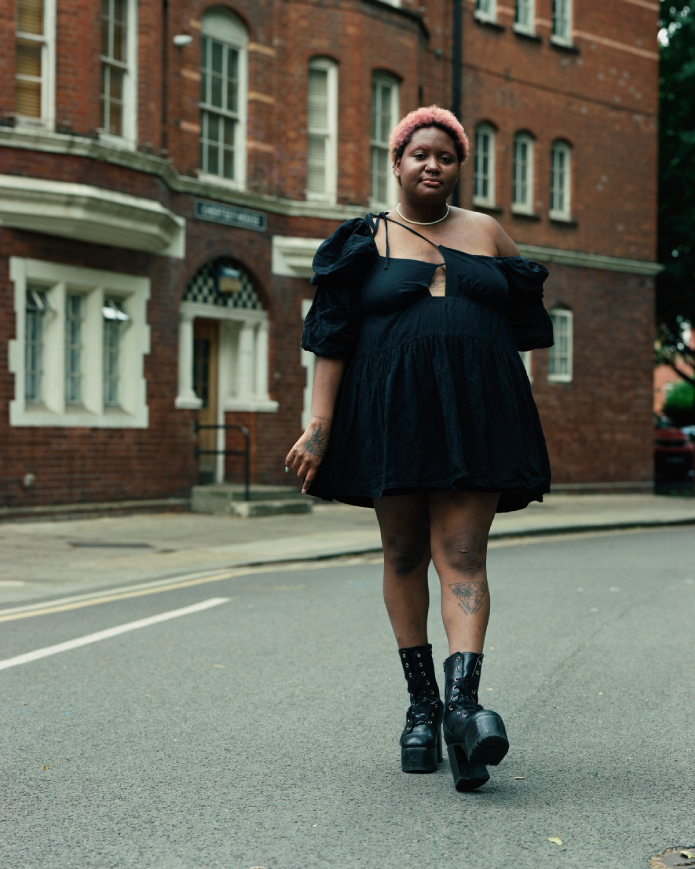
“Pride is a great celebration but also still a riot because trans people still have rights taking from them. The fight is not over, of course, we can celebrate what we have, but it’s not enough. Like what happened with trans people being left out of the conversation therapy ban, we still need to fight for that.”
Jo (They/Them), India
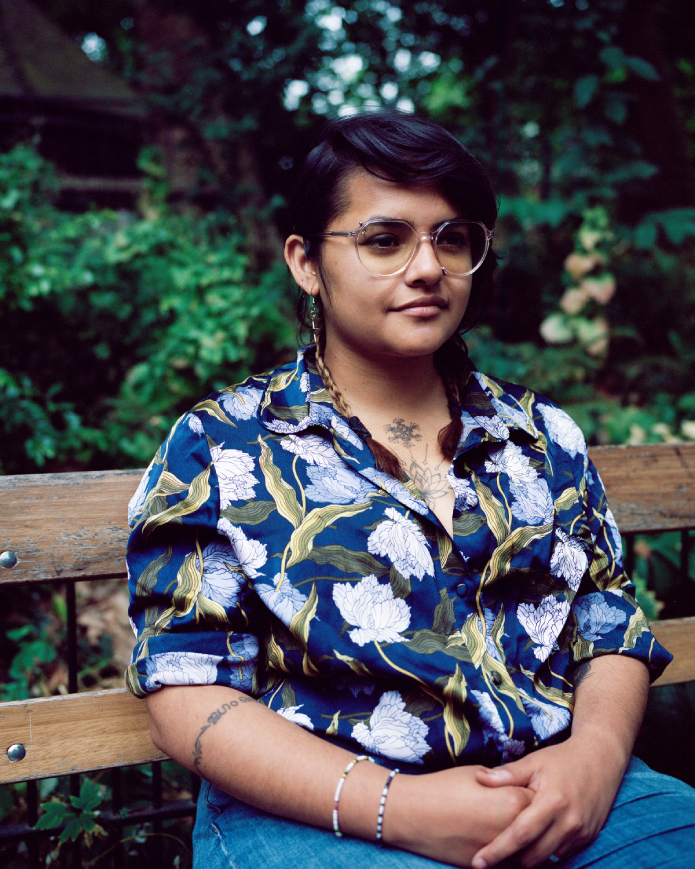
“Moving from India to the UK, I felt survivors’ guilt, because when I came here in September 2019, it was when the trans bill was introduced in India. That bill was extremely violent for trans people, and I felt like I left my community and came here while at the same time, when you think about it, you’re like, ‘What would I have done? I did want to do my PhD.’ It doesn’t mean that I am completely out from my community there, thanks to technology, I’m able to stay in touch and do the work.”
Blue (She/They), El Salvador
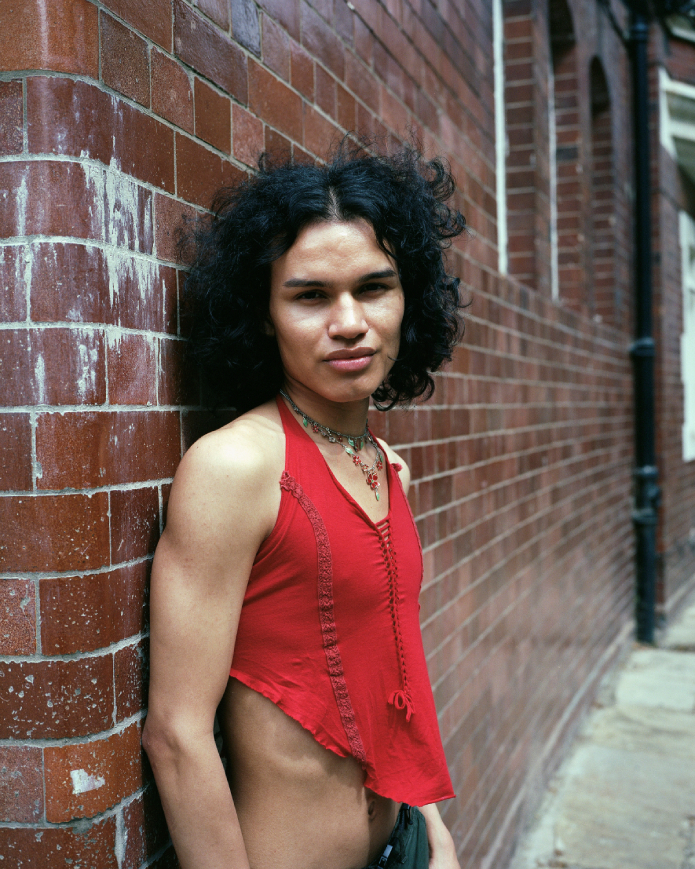
“I left El Salvador at a very young age, and I think that had I not travelled out by 18-years-old I would’ve led a much more depressed life. So, I’m glad and happy that by the youngest possible time that I could get out, I did. And I was lucky because not many people have that privilege of being able to get out and live their happy, authentic lives. So that is why I try to be loud and clear about my gender and about my identity as a Latinx queer person whatever I go, I’m just out and about and flamboyant as a possibly can be not because I want to, but because I am yeah. Period.”
Nina (She/Her), Philippines
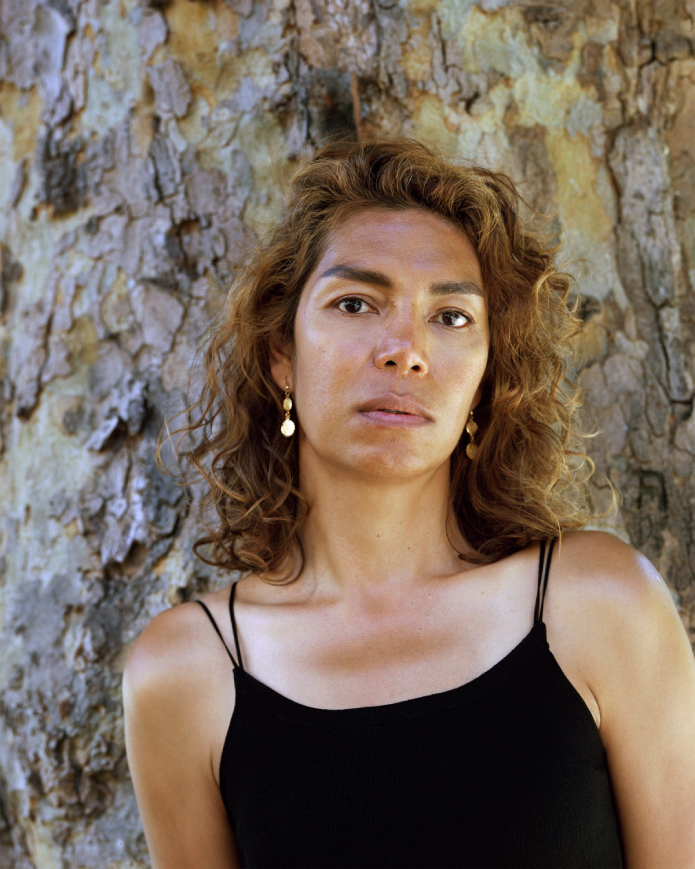
“The positive side about living in the UK is that I’m able to live as the gender that I am. Also, I’m lucky because I have passing privilege here, I’m rarely harassed or bothered (although still happens sometimes) and it validates me. But there are also negatives to that, because first and foremost, validation shouldn’t be dependent on someone else. And as you know currently, we have a government that’s very hostile trans people and the media is very hostile too. But at least we have rights here and I think a lot of people still see and respect trans here in the UK.”
Diamond (She/They), Botswana
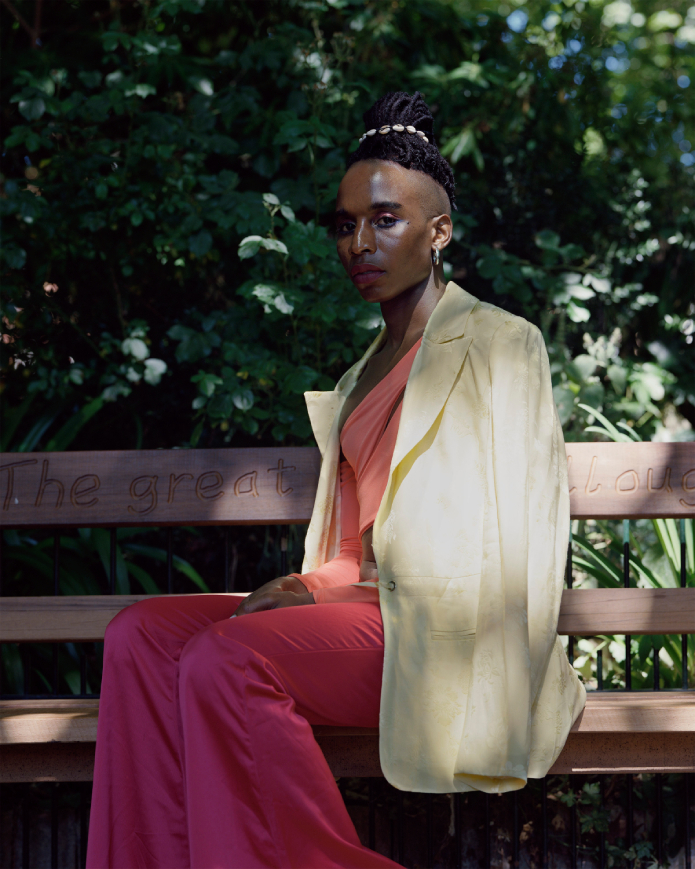
“As a non-binary person, Pride in general means freedom. It means expression. It means the liberation of human rights. But it also means that we still need to keep on carrying on and fighting. The struggle is real, especially from where I come from in Africa, so we need to keep on fighting and fighting and fighting and stand for our rights. I moved recently to London. I’m still discovering the city. But I’m very grateful that the queer community has been very supportive. When I left my country, I was in a very dark place, but I feel much lighter here, I love more, and I smile more. I’m much happier because the support has been amazing.”
Victoria (She/Her), Philippines
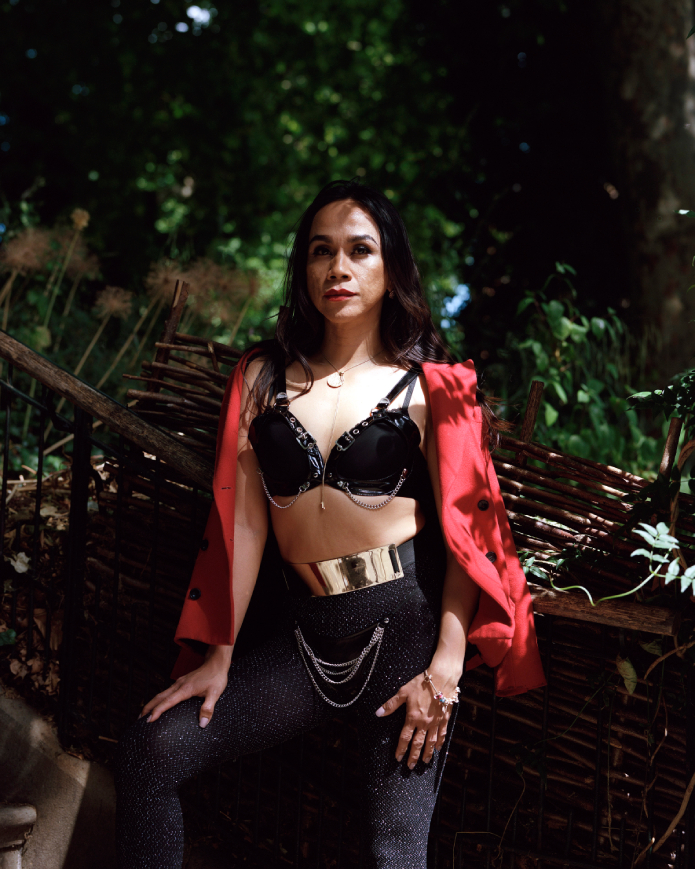
“Here, I found a new family. I’m alone here in UK, that is why having that sort of safe space with people who are like you, who have the same ambition as you, it is something magical to find. Specially knowing that this is something that been taken away from us by the system. Now I’m slowly integrating myself, not only within the queer community, but outside our community because we need to build bridges. We need to build bridges towards understanding, towards acceptance, towards love and towards happiness. “
